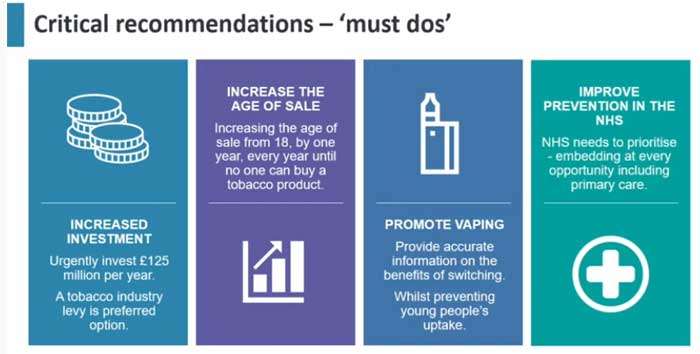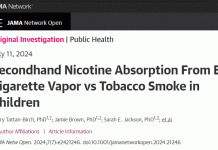The Oxford Academic Group “Nicotine & Tobacco Research” have published a paper titled “The effect of conflicting public health guidance on smokers’ and vaper’s e-cigarette harm perceptions“.
You can also view a PDF of the whole study here.
As the title implies this study is examining how public health guidance and media perception form harm reduction opinions in smokers and vapers.
The opening paragraph sums up why this study was needed…
“E-cigarettes are increasingly being viewed, incorrectly, as more harmful than cigarettes. This may discourage smokers from switching to e-cigarettes. One potential explanation for these increasingly harmful attitudes is conflicting information presented in the media, online and from public health bodies.”
In general we assume the attitude to vaping is pretty positive, but as my own News Tracker demonstrates – the media can often promote scare tactics which go against public health recommendations.
More About the Study
A registered online study received responses from 334 daily UK smokers who don’t vape and 368 daily UK vapers.
These respondents were then presented with varying information regarding harm reduction.
Conclusions
This study appeared to show that those who are exposed to negative messages against vaping did tend to view vaping as more harmful. Even vapers were susceptible to absorbing the negative statements.
I quote…
“Our findings suggest that public health bodies should communicate the safety of e-cigarettes in consensus with other public health bodies to reduce harm perceptions. This is feasible in light of the growing body of evidence suggesting that e-cigarettes are an effective smoking cessation tool and therefore have the potential to reduce smoking associated morbidity and mortality.
Additionally, public health bodies may wish to proactively challenge negative information by countering it with harm reduction information, as we find that negative information is more harmful than conflicting information. However, when public health bodies are already in conflict, it is not necessarily advantageous to reiterate the harms of smoking.
These communication methods need to be evaluated amongst people who do not smoke, to ensure that vaping is not promoted amongst this group. “
So who knows what the effect of the recent spate of negative press will have on harm reduction. It looks like there is a lot more work needed to make sure smokers are educated correctly on the risks and benefits of swapping to vaping.
Thankfully this was a part of the critical recommendations (“must dos”) in the recent Khan Independent Tobacco Review. It was stated that accurate information on vaping must be provided whilst also making sure to prevent youth vaping.
So fingers crossed this should be less of an issue in the future.









